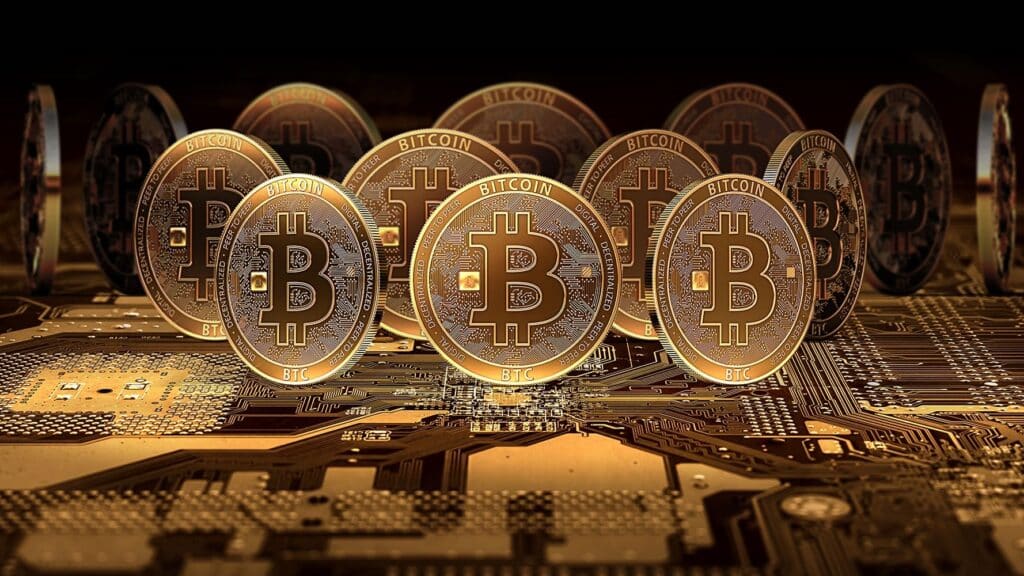The emergence of Decentralized Finance (DeFi) is reshaping numerous sectors, and its influence on the online gambling industry is particularly transformative, offering both opportunities and challenges for players and operators alike.
Understanding DeFi and its Core Principles
Decentralized Finance (DeFi) represents a paradigm shift in financial systems, moving away from traditional, centralized intermediaries towards blockchain-based, peer-to-peer networks. At its heart, DeFi leverages cryptocurrencies and smart contracts to deliver financial services directly to users, eliminating the need for banks, brokers, or other institutions. This decentralization is underpinned by several core principles:
- Decentralization: DeFi platforms operate on distributed ledgers, reducing reliance on central authorities and single points of failure. This enhances transparency and reduces censorship risks.
- Transparency: Transactions and smart contract code are typically publicly auditable on the blockchain, fostering greater transparency compared to traditional financial systems.
- Accessibility: DeFi aims to democratize finance by offering services to anyone with an internet connection, potentially reaching underserved populations excluded from traditional banking.
- Immutability: Once recorded on the blockchain, transactions are immutable and tamper-proof, enhancing security and trust in the system.
- Programmability: Smart contracts enable the automation of complex financial agreements and the creation of novel financial products and services.
The Convergence of DeFi and Online Gambling
The integration of DeFi with online gambling is creating a new ecosystem that promises to address some of the traditional online gambling industry's pain points while introducing new dynamics. This convergence is primarily driven by the inherent advantages that DeFi brings to the table, such as faster transactions, lower fees, enhanced transparency, and increased privacy. For online gambling platforms, adopting DeFi technologies can lead to significant operational efficiencies and a more appealing user experience. For gamblers, DeFi integration can translate to faster payouts, reduced costs, and potentially fairer gaming environments.
Benefits of DeFi in Online Gambling for Players
For online gamblers, the integration of DeFi presents a suite of compelling advantages that enhance the overall gambling experience and address long-standing concerns within the industry.
Enhanced Transaction Speed and Lower Fees
Traditional online casinos often rely on conventional payment methods like credit cards and bank transfers, which can be slow and incur fees. DeFi, leveraging cryptocurrencies, facilitates near-instantaneous transactions with significantly lower fees. This is because cryptocurrency transactions are processed directly on the blockchain, bypassing intermediaries that typically impose charges. For gamblers, this means quicker deposits and withdrawals, allowing for immediate access to winnings and funds without being eroded by hefty transaction costs. This efficiency is particularly beneficial in the fast-paced environment of online gambling, where timely access to funds can significantly impact the player experience.
Increased Privacy and Anonymity
Privacy is a growing concern for online gamblers. Traditional online casinos often require extensive personal information for KYC (Know Your Customer) and AML (Anti-Money Laundering) compliance, raising privacy concerns and the risk of data breaches. DeFi-based gambling platforms can offer a higher degree of anonymity. Cryptocurrency transactions are pseudonymous, meaning they are not directly linked to personal identities in the same way as traditional banking transactions. While not entirely anonymous, this provides a layer of privacy that is attractive to many users. Gamblers can engage in online betting with less fear of their gambling activities being directly linked to their personal financial records, offering a sense of discretion and control over their personal information.
Transparency and Provably Fair Gaming
Trust is paramount in online gambling. A significant concern for players is the fairness of games and the integrity of the platform. DeFi introduces the concept of provably fair gaming, which utilizes blockchain technology and cryptographic algorithms to ensure that game outcomes are truly random and cannot be manipulated by the casino or any other party. In a provably fair system, players can independently verify the fairness of each game by examining the cryptographic hashes of the game seeds and outcomes. This level of transparency is unprecedented in traditional online gambling, where the fairness of algorithms is often opaque and unverifiable by the player. DeFi platforms can build trust and legitimacy by providing this verifiable fairness, addressing a key concern for many online gamblers.
Global Accessibility and Reduced Restrictions
Traditional online gambling platforms often face geographical restrictions due to varying gambling regulations across jurisdictions. DeFi platforms, operating on a decentralized and borderless blockchain, can potentially circumvent these geographical limitations. Cryptocurrency transactions are not subject to the same cross-border restrictions as traditional fiat currencies, enabling platforms to offer services to a global audience, including regions where traditional online gambling might be restricted. This global accessibility expands the market reach for operators and provides more gambling options for players in restricted regions. However, it's crucial to note that regulatory landscapes for both DeFi and online gambling are still evolving, and platforms must navigate legal compliance in different jurisdictions.
Innovative Gambling Products and Services
DeFi opens the door to innovative gambling products and services that are not feasible in the traditional online gambling framework. Smart contracts can automate complex betting mechanisms, create novel game formats, and facilitate peer-to-peer betting platforms where users bet against each other rather than against the house. Decentralized Autonomous Organizations (DAOs) could even govern gambling platforms, allowing community-driven management and operation, potentially leading to fairer and more user-centric platforms. These innovations can enhance user engagement, offer more diverse gambling options, and potentially disrupt the traditional casino-centric model of online gambling.
Challenges and Risks Associated with DeFi Gambling
While DeFi's integration into online gambling offers numerous benefits, it also introduces a set of challenges and risks that both players and operators must be aware of.
Regulatory Uncertainty and Compliance
One of the most significant challenges for DeFi gambling platforms is the evolving and often unclear regulatory landscape. Both DeFi and online gambling are sectors facing increasing regulatory scrutiny, and the intersection of the two creates a complex legal environment. Governments worldwide are still grappling with how to regulate cryptocurrencies and DeFi, and gambling regulations vary widely across jurisdictions. DeFi gambling platforms must navigate this uncertainty to ensure legal compliance, which can be complex and costly. Failure to comply with regulations can lead to severe penalties, including fines, operational shutdowns, and legal repercussions. For players, this regulatory ambiguity can also create uncertainty about the legality and security of using DeFi gambling platforms in their respective jurisdictions.
Security Risks and Smart Contract Vulnerabilities
While blockchain technology is inherently secure, DeFi platforms are not immune to security risks. A significant portion of DeFi platforms rely on smart contracts, and vulnerabilities in smart contract code can be exploited by hackers, leading to substantial financial losses. The immutability of blockchain means that once a vulnerability is exploited, it is often irreversible. The DeFi space has witnessed several high-profile exploits and hacks targeting smart contracts, underscoring the importance of robust security audits and best practices in smart contract development. For gamblers using DeFi platforms, this risk translates to the potential loss of funds due to security breaches or smart contract flaws. Players need to be aware of the security posture of the platforms they use and the risks associated with smart contract technology.
Volatility of Cryptocurrencies
DeFi gambling platforms primarily operate using cryptocurrencies, which are known for their price volatility. The value of cryptocurrencies like Bitcoin or Ethereum can fluctuate dramatically in short periods. This volatility can impact both player winnings and the operational stability of gambling platforms. For players, winnings earned in cryptocurrencies can lose significant value by the time they are withdrawn or used, and conversely, losses can be amplified if the value of the cryptocurrency increases after a bet is placed. For operators, managing cryptocurrency volatility is crucial for maintaining financial stability and ensuring payouts can be honored. Risk management strategies and hedging mechanisms are essential for DeFi gambling platforms to mitigate the impact of cryptocurrency price swings.
Complexity and User Experience
DeFi technologies can be complex for the average user to understand and navigate. Interacting with DeFi platforms often requires a degree of technical knowledge about cryptocurrencies, wallets, and blockchain interactions. This complexity can be a barrier to entry for many potential users, particularly those new to both online gambling and cryptocurrencies. The user experience on some DeFi platforms can be less user-friendly compared to traditional online casinos, which have invested heavily in user interface and user experience design. Simplifying the user experience and providing educational resources are crucial for DeFi gambling platforms to attract and retain a broader audience. Improving usability and making DeFi gambling more accessible to non-technical users is key to wider adoption.
Responsible Gambling Concerns
The accessibility and anonymity offered by DeFi gambling platforms can exacerbate responsible gambling concerns. The ease of access, coupled with the potential for increased privacy, might make it harder for individuals to control their gambling habits and for platforms to implement effective responsible gambling measures. Traditional online casinos are often subject to regulations that mandate responsible gambling tools, such as deposit limits, self-exclusion programs, and age verification. DeFi platforms need to develop and implement their own responsible gambling mechanisms to protect vulnerable users. This is particularly important in the decentralized and less regulated environment of DeFi, where self-regulation and community-driven responsible gambling initiatives are crucial.
Impact on Traditional Online Gambling Operators
The rise of DeFi gambling platforms presents both a challenge and an opportunity for traditional online gambling operators. These established operators, accustomed to centralized systems and fiat currencies, must consider how to adapt to the emerging DeFi landscape to remain competitive and relevant.
Competitive Pressure and Market Disruption
DeFi gambling platforms are introducing a new competitive dynamic into the online gambling market. By offering advantages like lower fees, faster transactions, and provably fair gaming, DeFi platforms can attract a segment of players seeking these features. This competitive pressure can disrupt the market share of traditional operators, particularly if DeFi platforms successfully address regulatory and user experience challenges. Traditional operators need to evaluate the potential impact of DeFi on their business models and consider strategies to respond to this emerging competition. Ignoring the DeFi trend could lead to a loss of market share to more agile and innovative DeFi-based competitors.
Potential for Integration and Hybrid Models
Rather than viewing DeFi as a direct competitor, traditional online gambling operators can explore opportunities for integration and hybrid models. Established casinos could incorporate cryptocurrency payment options and integrate DeFi elements into their platforms to enhance user experience and attract a broader customer base. Hybrid models, combining aspects of traditional and decentralized systems, could offer a pathway for operators to leverage the benefits of DeFi while maintaining compliance and user familiarity. For example, operators might offer DeFi-based games alongside traditional casino games or integrate DeFi payment gateways to facilitate cryptocurrency transactions. This strategic integration could allow traditional operators to tap into the DeFi market without completely overhauling their existing infrastructure and business models.
Innovation and Technological Advancement
The emergence of DeFi gambling can spur innovation and technological advancement within the broader online gambling industry. To compete with DeFi platforms, traditional operators may need to invest in new technologies, enhance their platforms, and improve their service offerings. This competition can drive innovation in areas such as payment processing, game development, security, and user experience. The need to adapt to DeFi can push traditional operators to become more technologically advanced and user-centric, ultimately benefiting the entire online gambling ecosystem. This innovation could lead to a new generation of online gambling platforms that combine the strengths of both traditional and decentralized systems.
The Future of DeFi and Online Gambling
The intersection of DeFi and online gambling is still in its early stages, but its potential to reshape the industry is undeniable. As both DeFi technologies mature and regulatory frameworks evolve, we can expect to see further integration and innovation in this space. The future trajectory will likely depend on several key factors.
Regulatory Developments and Global Adoption
Regulatory clarity will be a critical factor in determining the future of DeFi gambling. As governments and regulatory bodies worldwide develop clearer frameworks for cryptocurrencies and DeFi, it will provide more certainty for platforms and users. Favorable or prohibitive regulations can significantly impact the growth and adoption of DeFi gambling. Global adoption will also depend on how different jurisdictions approach the regulation of both DeFi and online gambling. Harmonized or at least consistent regulatory approaches across major gambling markets could facilitate wider adoption and cross-border operations for DeFi gambling platforms. Conversely, fragmented and conflicting regulations could hinder growth and create operational complexities.
Technological Advancements and Scalability
Continued technological advancements in blockchain technology and DeFi infrastructure are essential for the long-term viability of DeFi gambling platforms. Scalability solutions that can handle high transaction volumes and ensure fast processing speeds are crucial for platforms to compete with the efficiency of traditional online casinos. Improvements in user experience, security protocols, and smart contract development will also be vital for attracting and retaining users. Technological progress will need to address current limitations and challenges to make DeFi gambling platforms more robust, user-friendly, and secure. Innovations in areas like layer-2 scaling solutions, cross-chain interoperability, and more secure smart contract languages will be particularly important.
User Education and Mainstream Acceptance
For DeFi gambling to achieve mainstream acceptance, user education and simplification are paramount. Many potential users are still unfamiliar with cryptocurrencies and DeFi concepts. Educational initiatives that demystify DeFi and explain its benefits in the context of online gambling are needed to broaden user adoption. Platforms need to prioritize user-friendly interfaces and intuitive designs to make DeFi gambling accessible to a wider audience, including those without technical expertise. As user education increases and platforms become more user-friendly, mainstream acceptance of DeFi gambling is likely to grow, potentially transforming how online gambling is experienced by a global audience.
Conclusion: A Transformative Force with Cautious Optimism
DeFi's influence on modern online gambling is poised to be transformative. The benefits of faster transactions, lower fees, increased privacy, and provably fair gaming are compelling and address key player concerns. However, challenges related to regulation, security, cryptocurrency volatility, and user complexity must be carefully navigated. While DeFi gambling platforms offer exciting new possibilities and have the potential to disrupt the traditional online gambling industry, responsible development, robust security measures, and clear regulatory frameworks are essential for its sustainable and ethical growth. For gamblers, understanding both the advantages and risks of DeFi gambling is crucial for making informed decisions in this evolving landscape. As the technology matures and the regulatory environment becomes clearer, DeFi's role in online gambling is likely to expand, offering a potentially more efficient, transparent, and user-centric alternative to traditional systems. However, a cautious and informed approach is necessary to harness its benefits while mitigating its inherent risks.
External Resources:



